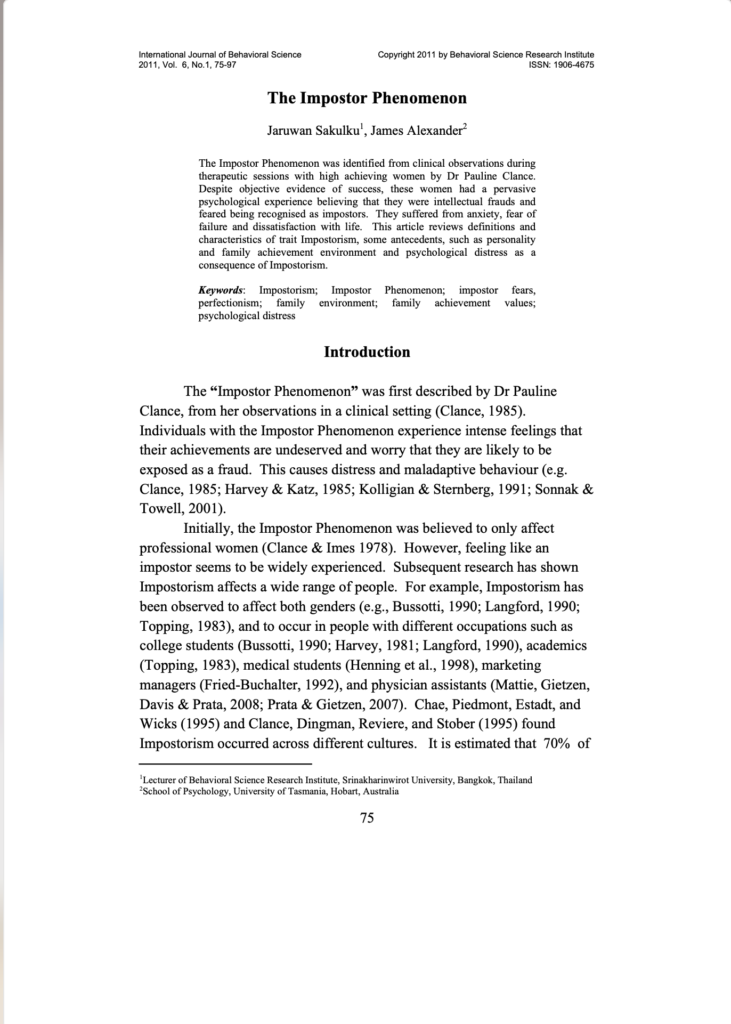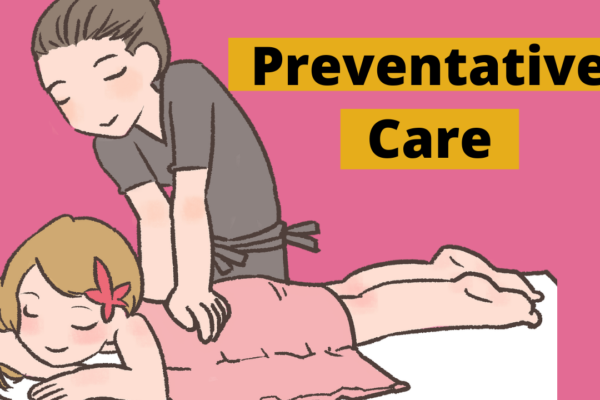In this post, I discuss imposter syndrome, what it is and how to beat it.
In this episode, I am invited to guest host a lecture on Imposter Syndrome for Claremont Graduate University PFF program, by professor, health scientist, program evaluation consultant, and my brother, Jonathan Aragon, MPH., PhDc.
🤓 You can learn more about his work here: https://jonaragon.com
🎥 Watch The Video: https://youtu.be/s47GPktZssU
Table of Contents
The Imposter Syndrome Cycle
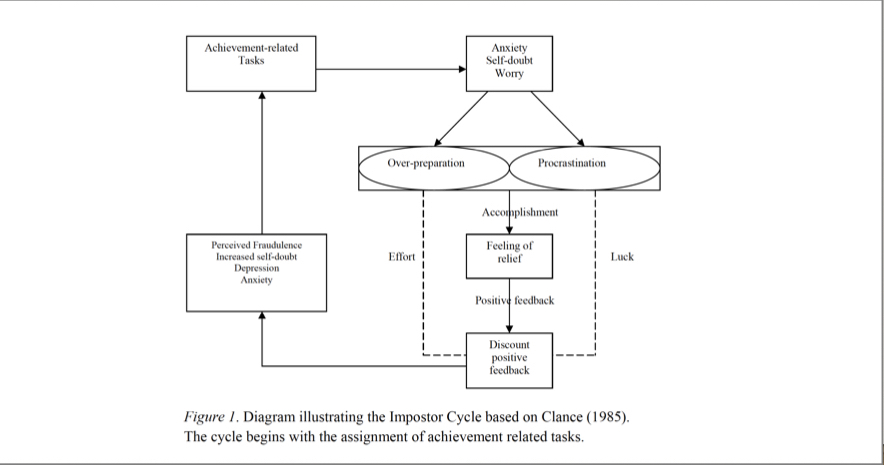
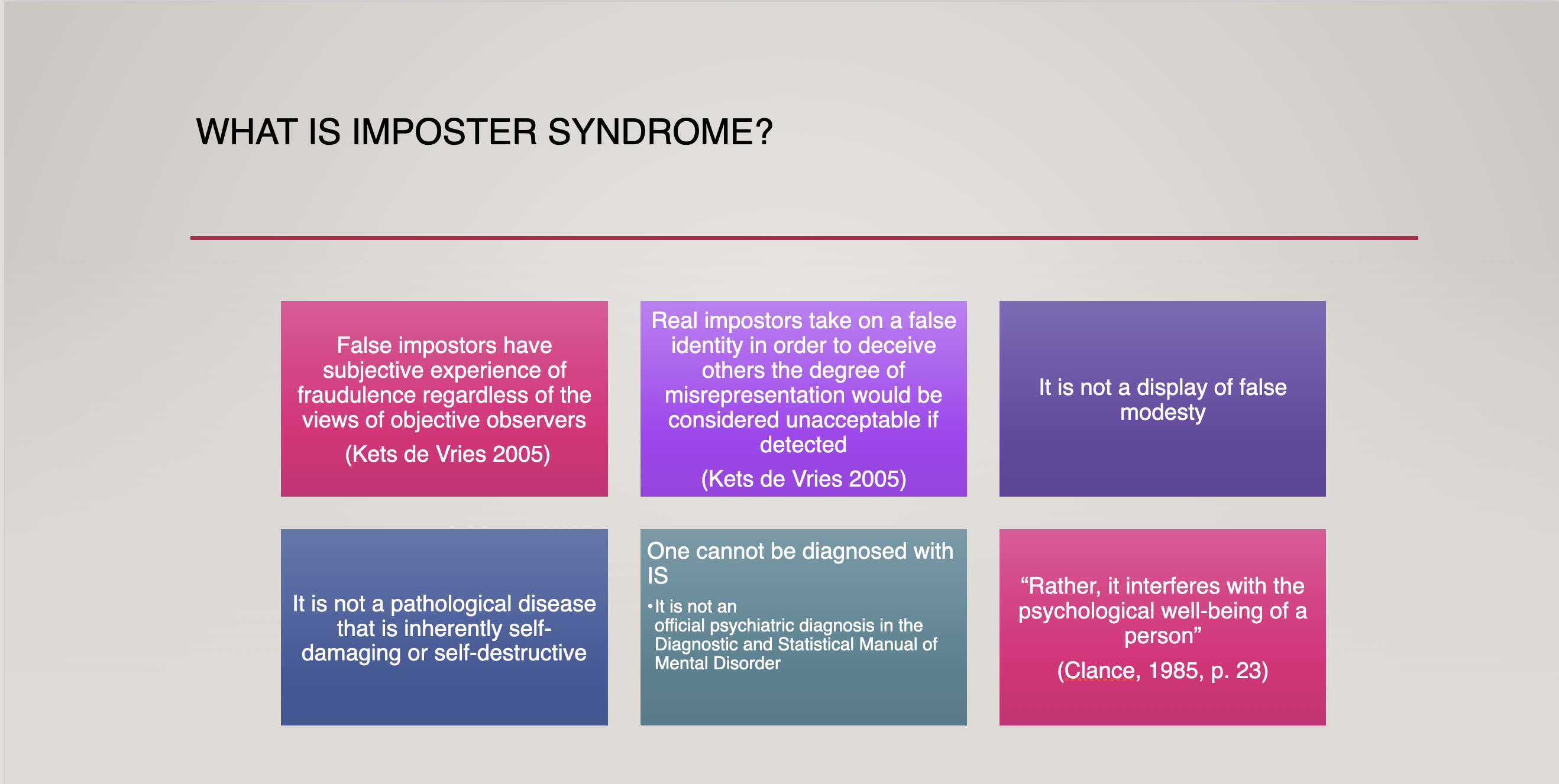
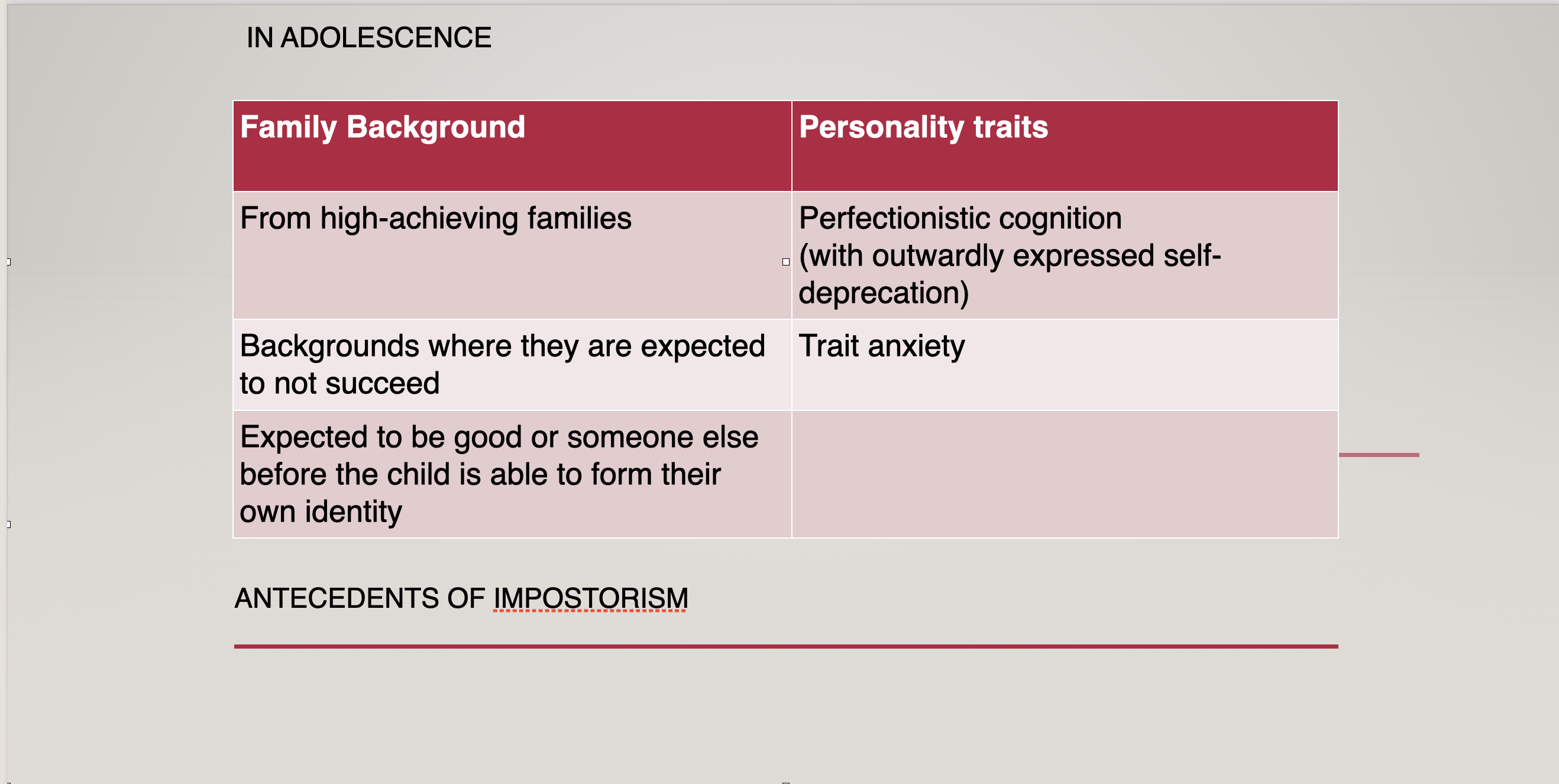
What is Imposter Syndrome?
- Perceived Fraudulence is common among high achievers
- Imposture Syndrome is often observed in highly competitive environments
- Imposter Syndrome is not limited to people who are highly successful
- Anyone can view themselves as an impostor if they fail to internalize their success
- It is estimated that 70% of people will experience at least one episode of this Impostor Phenomenon in their lives (Gravois, 2007).
- Anyone can be an impostor when they display a façade or present a public self that is different from their private self, in order to meet social expectations (Kets de Vries’s 2005)
Imposter Syndrome is the “internal experience of intellectual phoniness” (Matthews & Clance, 1985, p. 71) in individuals who are highly successful but unable to internalize their success (Bernard, Dollinger, & Ramaniah, 2002; Clance & Imes, 1978). Clance (1985) “Imposter Phenomenon”
(1) The Impostor Cycle
(2) The need to be special or to be the very best
(3) Superman/Superwoman aspects
(4) Fear of failure
(5) Denial of competence and Discounting praise
(6) Fear and guilt about success
Imposter Syndrome is “a psychological pattern rooted in intense, concealed feelings of fraudulence when faced with achievement tasks” (Hellman & Caselman, 2004, p. 161). Kets de Vries (2005) “Imposter Phenomenon.”
- (1) The belief that he/she has fooled other people
- (2) Fear of being exposed as an impostor, and
- (3) Inability to attribute own achievement to internal qualities such as ability, intelligence, or skills.
Imposter Syndrome can be seen as a “self-perception of fraudulence, which is a combination of cognitive and affective components, rather than an emotional disorder.” (Kolligan & Sternberg, 1991; Leary, Patton, Orlando, & Funk, 2000). Kolligian & Sternberg (1991) “Perceived Fraudulence.”
- Fraudulent ideation
- Self-criticism
- Achievement pressures
- Negative emotions
Perceived Fraudulence emphasizes a vigilant practice of impression management and self-monitoring in Impostors, who are concerned about their self-worth and social image (Kolligian & Sternberg, 1991).
Imposter Syndrome Is A Normal Part Of The Human Experience:
The exaggerated esteem in which my lifework is held makes me very ill at ease. I feel compelled to think of myself as an involuntary swindler
Albert Einstein, Nobel laureate
Source: https://toolbox.humandeluxe.com/albert-einstein-imposter/
Yes, you’re an impostor. So am I and so is everyone else. Superman still lives on Krypton and the rest of us are just doing our best.
Seth Goden
Source: https://seths.blog/2017/10/imposter-syndrome/
🎥 If you liked this video, be sure to check out my full playlist on Anxiety Tips: https://bit.ly/3iEimoZ
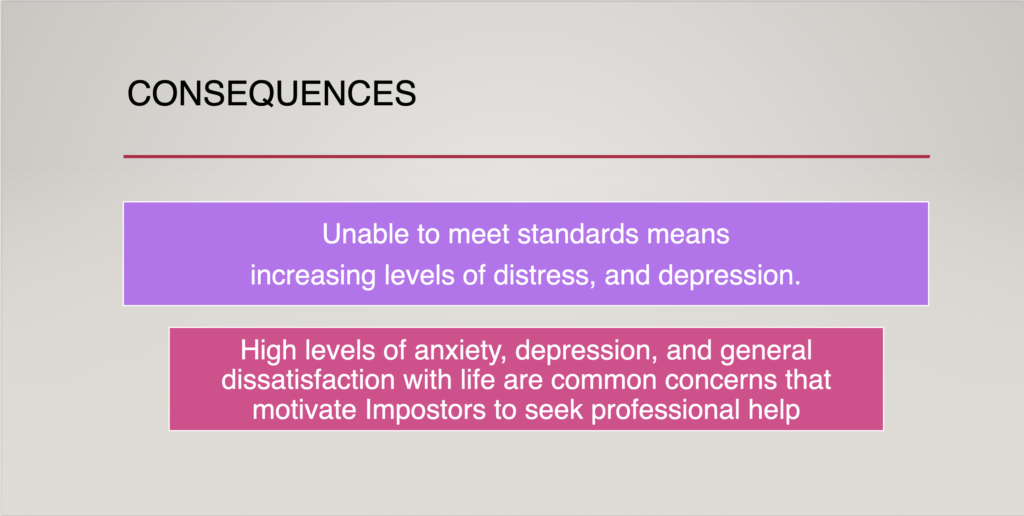
How To Beat Imposter Syndrome
In order to combat imposter syndrome, it is critical to identify and integrate into “safe to fail” environments, rather than “fail-safe” ones. Meaning, finding supportive people and appropriate testing grounds to take socially acceptable risks to experiment and practice skills as many times as needed to become adequate at said skill (communication, or soft skills, or technical/hard skills). Think app developers and sandbox programs.
We grow in confidence and capabilities when we have permission to make mistakes over many attempts. After-all, that is the only way we truly learn, and we generally make far more progress learning through various integration vs trying to make things “perfect” the first time. What gets measured gets improved, and we get far more data and feedback from our efforts when we have more micro attempts to measure, compare and contrast. Beta before better, progress before perfection. Consistency is king and we must find ways to hone our skills at a steady and predictable pace.

Reference: Primary Resource Article On Imposter Syndrome
Want to learn more? Check out my top picks for books on self-improvement and recovery HERE!
NEED CRISIS HELP? If you need immediate crisis help with your depression, you can call the National Suicide Prevention Lifeline at 1-800-273-8255 or text “START” to 741-741
OUTSIDE THE UNITED STATES: See International Suicide Hotlines
WHERE TO FIND MENTAL HEALTH HELP:
-NAMI Referral Helpline: 1-800-950-6264
-California’s Statewide Mental Health Helpline: 1-855-845-7415
ASK: If you have a question you’d like me to answer here on the blog (even if you think it’s a silly one!), please use the form on the CONTACT ME page, or the comment section below. I would be happy to take a poke at it and provide a long form answer when appropriate.
SHARE: Also, be sure to share it with a friend, as there is still a lot of work to be done in raising mental health awareness.
SUBSCRIBE to get your FREE MOOD TRACKING TOOL and quick Mental Health Hacks in addition to this newsletter. Sign-up with the form below.
[mc4wp_form id=”142″]
admin
Latest posts by admin (see all)
- How to Build a Referral Engine Without the “Hustle”: - January 12, 2026
- ADHD Tips for Therapists | with Dr. Jennifer Dall - May 28, 2025
- Why Therapy Fails Men (And How to Fix It) – Insights with Marc Azoulay - May 11, 2025


